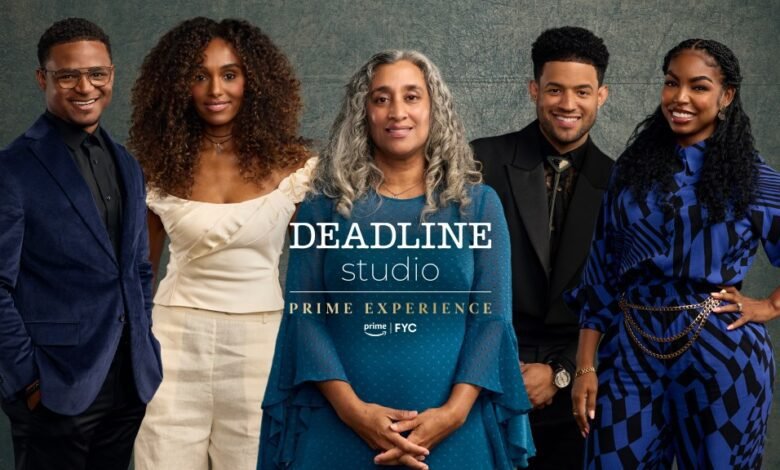‘Maxine’s Baby’ Documentary Follows Tyler Perry’s Rise


Anthony Avellano for Deadline
Tyler Perry has taken the entertainment world by storm – the creative force behind two dozen films, 17 television shows, best-selling books and 20 plays. He’s built a thriving studio complex in Atlanta, and just today Deadline reported that he’s signed a first-look deal with Netflix to produce faith-based films alongside DeVon Franklin.
It was a long and unlikely journey to the top of his profession, a story told in the Emmy-nominated documentary Maxine’s Baby: The Tyler Perry Story. Gelila Bekele (Perry’s former life partner) and Armani Ortiz directed the Amazon MGM Studios film, with the first footage filmed a decade ago.
“I saw this man getting busier than ever and I had the privilege of having a front row seat and I just wanted to document that for the archive,” Bekele explained during a Deadline Studio appearance at the Prime Experience in Hollywood. “I realized that there is a huge amount of history missing, especially in the African-American community, and the contribution [to] American history that Tyler is doing.”
Check out the panel conversation here and photos from the event below.
Perry grew up poor in New Orleans, descended from a long line of preachers on his mother’s (the titular Maxine) side. He suffered constant verbal and physical abuse at the hands of his father, Emmitt Perry Sr., as well as his mother. He moved to Atlanta, where he was homeless at one point, but his interest in writing (inspired by watching Oprah Winfrey’s daytime talk show) eventually turned into a career on the stage of what is popularly known as the Chitlin Circuit.
“As we were making this documentary, we started to realize that yes, he is an entertainment icon, but when you peel back the layers, he is an incredible human being who was able to sacrifice and endure so many things,” Ortiz noted. “We really wanted that to come across in the film.”
Perry revolutionized the industry due to the speed with which he created his productions, streamlining processes to avoid waste. He also pioneered the “10-90” model of television production, whereby he creates the initial 10 episodes of a series and, if they are successful, the network or channel that airs them commits to recording 90 more. episodes. By building such a large production hub in Atlanta, he supported a generation of emerging talent both in front of and behind the camera.
Jasmine K. White, the documentary’s producer who has worked on several productions at Tyler Perry Studios, recalled words of wisdom Perry shared with young creatives. “He brings us together and says, ‘Hey, let me just say we’re about to do something. It’s going to be great, it’s going to be incredible. But for most of you, I want you to know that I never intended for you to stay here. I wanted you to grow up here. These are training camps,’” White recalled. “For me, starting so young and being there for over a decade, I’ve grown, I’ve learned, and I feel like he prepared me for that. I’ve been there a long time and when I had the opportunity to do this, I felt equipped.”
In the film, Perry notes that no one in the industry can say they surpass him. Based on the evidence, this is not a boast but a self-evident fact. Asante White, also a producer of the documentary, expressed surprise at Perry’s work ethic. “He not only believes in himself, but also in every person who works for him in the studio,” he noted. “Watching him made us almost, in a sense, believe in ourselves. He’s encouraging, he’s inspiring.”
The film gives space to those who criticize Perry’s work, including some African-American critics who question her representation of black women and object to broad comedy elements in her work. In the past, director Spike Lee was one of Perry’s biggest detractors, but when Perry opened his colossal Atlanta studio in 2019, he named one of the 12 sound stages for Lee. The filmmakers appear to have ironed out any remaining differences.
“There was a time when there was tension between him and Spike,” commented executive producer Geeta Gandbhir. “I think what this [film] it also shows, in addition to its incredible story, that there is room for so many different types of art from different perspectives. Like, who’s to say that his films aren’t art, have no purpose, or have no place? That, to me, was a really powerful lesson that I think we can take to the world.”
For more content from Deadline Studio on Prime Experience, click here.




